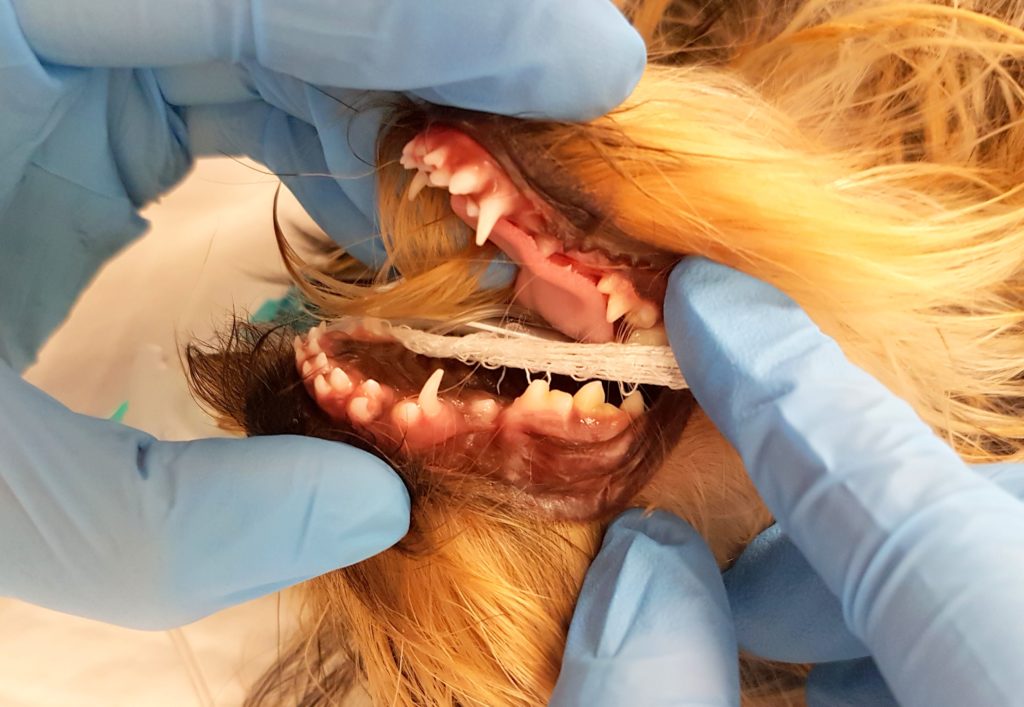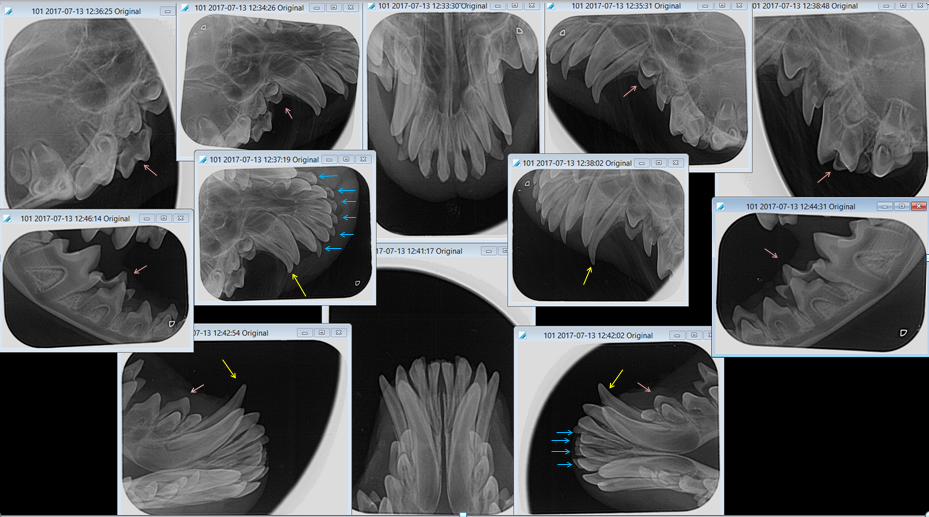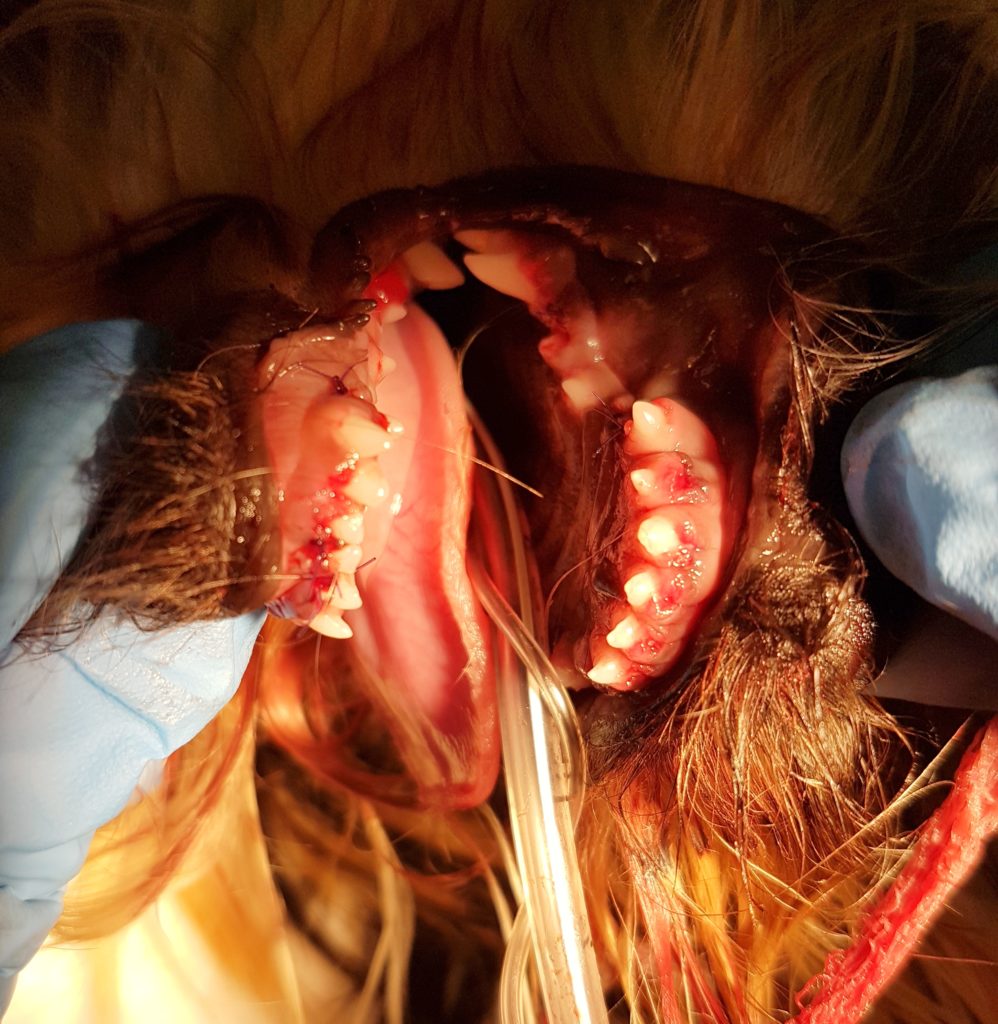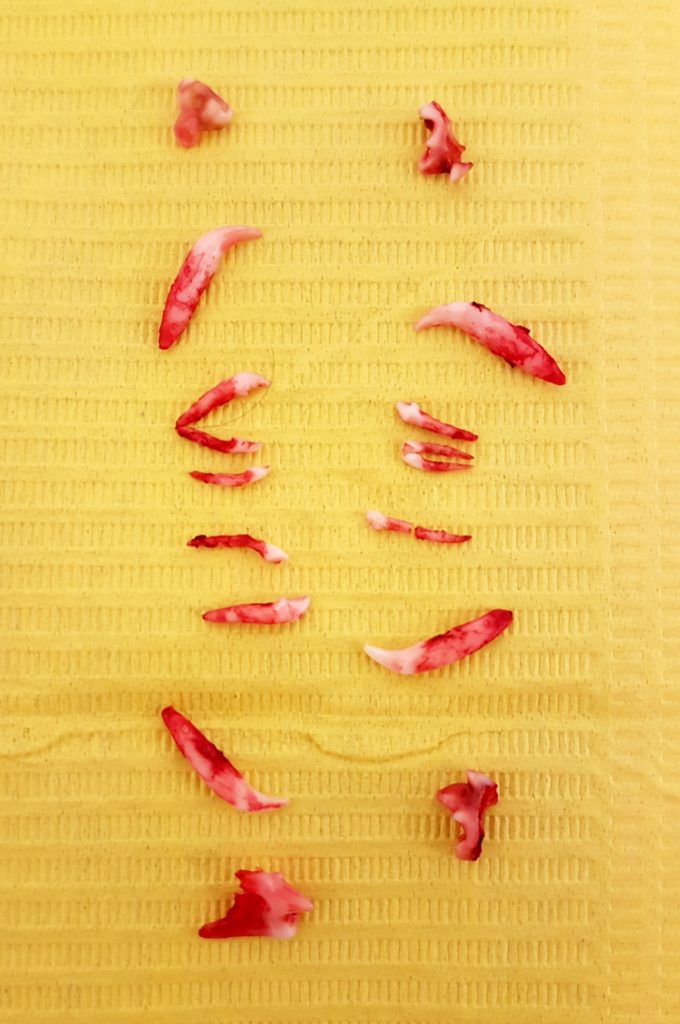When to visit veterinary dentist for first time?
Puppies nad kittens, similarly to children, could suffer from various diseases of oral cavity, such as malformations and traumas. Because of that, it is extremely important to start paying attention to craniofacial structures and teeth conformation from the moment of first vaccinations. These factors can influence the future comfort of life and health status of our pet.
Luca is a 6-months old female Yorkshire terrier, in which incorrect teeth replacement was discovered at 5th month of age. During dental consultation, the presence of persisted deciduous teeth was confirmed. These teeth weren’t lost, despite the presence of its permanent equivalents. It is typical disease seen in miniature breeds, such as: Yorkshire terrier, Poodle, Maltese, and Pomeranian.
When it is noted that permanent teeth growth is not directly in line with deciduous teeth, it is not likely that the primary teeth will be lost. The reason it happens is because a stimulation made by permanent teeth is causing root resorption nad eruption of deciduous teeth. Every procedure, such as massaging and playing with toys, will accelerate the tooth loss. It is unlikely although, that these procedures will help in case of persistent deciduous teeth, because there is no natural root resorption in that situation. Moreover, all of the procedures mentioned above could lead to the fracture of teeth crowns. It that case, the procedure of surgical extraction of deciduous teeth is necessary as soon as possible. Presence of both teeth generations is causing abnormal conformation of permanent teeth, and due to that can lead to several kinds of malocclusions, including traumatic ones. Additionally, persistent teeth are the surface for dental plaque deposition, what causes the faster development of periodontal diseases.
In Luca’s case we decided to perform the surgery as soon as possible. After performing all necessary vaccinations and blood tests, there was no contraindications for general anaesthesia. Procedure itself required performing dental x-rays. It was also extremely important to manipulate gently, because deciduous teeth roots are very long comparing to crowns, and very fragile at the same time. Moreover, there is a risk of permanent teeth buds damage, and that could lead to their loss.
Thanks to thorough anaesthetic care and individually prepared protocol, Luca’s surgery went well, without any complications, all of monitored parameters were within normal limits. Recovery was smooth and comfortable for the animal.
In upcoming weeks we will meet again at control visits, because the control of potential malocclusions is still very important. However, together with the owners we hope that there will be no additional orthodontic intervention necessary.
lek. wet. Dagmara Majewska








